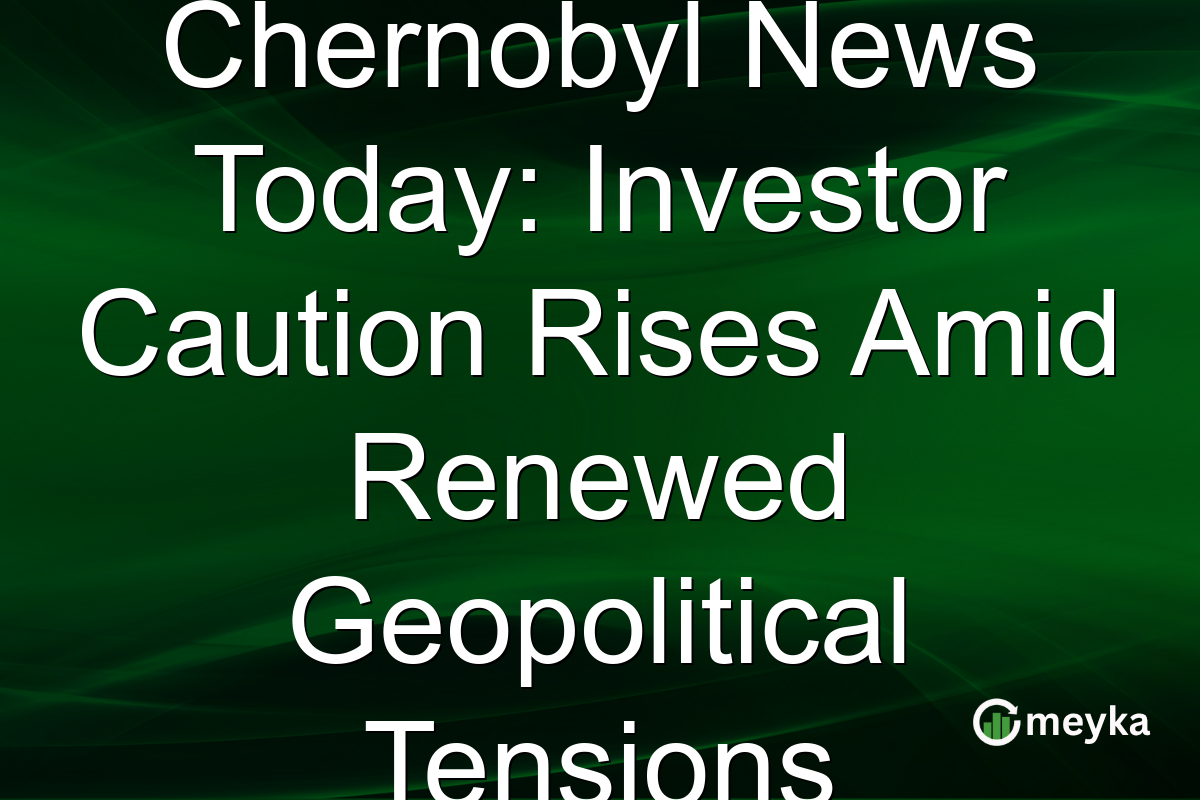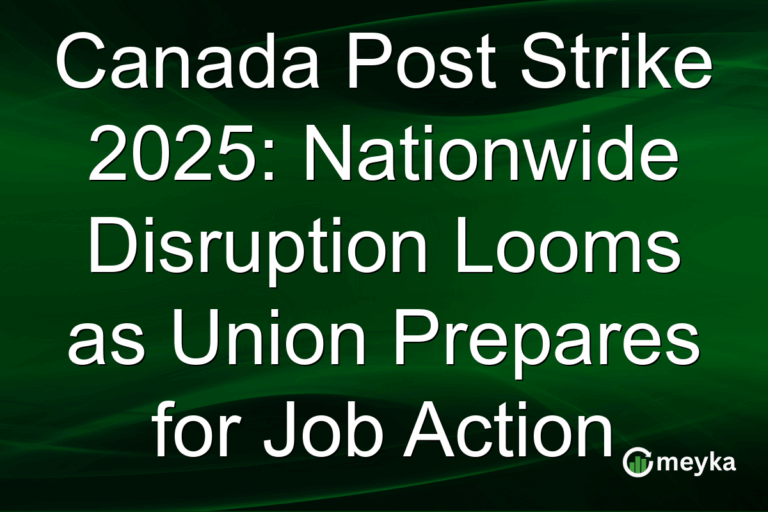Chernobyl News Today: Investor Caution Rises Amid Renewed Geopolitical Tensions
Rising geopolitical tensions in Ukraine have resurrected concerns about the safety of the Chernobyl nuclear site, prompting a wave of investor caution. The heightened focus on Chernobyl comes after new official statements questioned the security of the area. This situation has amplified worries about potential disruptions in European markets, significantly influencing investor sentiment, particularly within the energy and insurance sectors. With the backdrop of renewed tensions, it’s crucial to explore how these factors impact global markets and investment strategies.
Geopolitical Risks and Market Volatility
Rising instability between Russia and Ukraine has consistently kept investors on edge. Chernobyl’s geopolitical connotation amplifies this unrest. Many fear that any escalation in tensions could directly impact European economies, sending ripples through global markets. Chernobyl, a pivotal emblem of nuclear disaster, becomes a focal point in assessing geopolitical risks stocks. Bloomberg highlights how renewed security concerns around Chernobyl could result in increased volatility. For investors, this scenario emphasizes the need for a robust risk assessment strategy.
Impact on Energy and Insurance Sectors
The energy and insurance sectors are particularly sensitive to these developments. Concerns about Chernobyl could lead to fluctuations in European energy markets, largely due to perceived threats to nuclear safety. This perception affects nuclear disaster investments, with many investors seeking refuge in less risky assets. The insurance sector, faced with potential claims related to disaster contingencies, might also experience volatility. Reuters notes that insurers might reevaluate coverage in regions at elevated risk due to geopolitical tensions. This shows how interconnected risks can significantly affect sector performance.
Implications for Broader Markets
While Chernobyl itself doesn’t directly drive economic performance, its symbolic presence amid geopolitical instability can influence broader market trends. Renewed focus on Chernobyl within the Ukraine conflict finance arena serves as a pivot for understanding regional risks. Investors are cautiously monitoring how these developments impact European equities, bond markets, and the stability of the euro. The situation underscores the necessity for diversified portfolios to mitigate specific regional risks. This aligns with strategies to protect investments from unpredictable geopolitical swings.
Final Thoughts
In conclusion, the recent geopolitical tensions in Ukraine, particularly concerning Chernobyl, have sparked renewed investor caution. As the market digests these developments, assessing exposure to geopolitical risks remains critical for investors. Adjusting strategies to include diverse assets can mitigate potential losses tied to regional upheavals. By staying informed and leveraging platforms like Meyka, which offers real-time financial insights, investors can better navigate the complexities of today’s market landscape. Understanding these intricate dynamics will be crucial for maintaining portfolio health amid ongoing uncertainties.
FAQs
Geopolitical risks can induce market volatility by creating uncertainty. Investors often react by reallocating assets to safer investments, affecting stocks like those in energy and insurance sectors. This can lead to reduced market confidence and fluctuation in asset prices.
Chernobyl is under scrutiny due to renewed geopolitical tensions in Ukraine, raising concerns about nuclear safety. Investors fear that any threat to the site could have broader implications for regional stability, affecting market dynamics across Europe.
The energy sector might face fluctuations due to perceived nuclear risks, while the insurance sector could experience volatility from potential disaster-related claims. These sectors are directly affected due to their roles in energy supply and risk management.
Disclaimer:
This is for information only, not financial advice. Always do your research.






